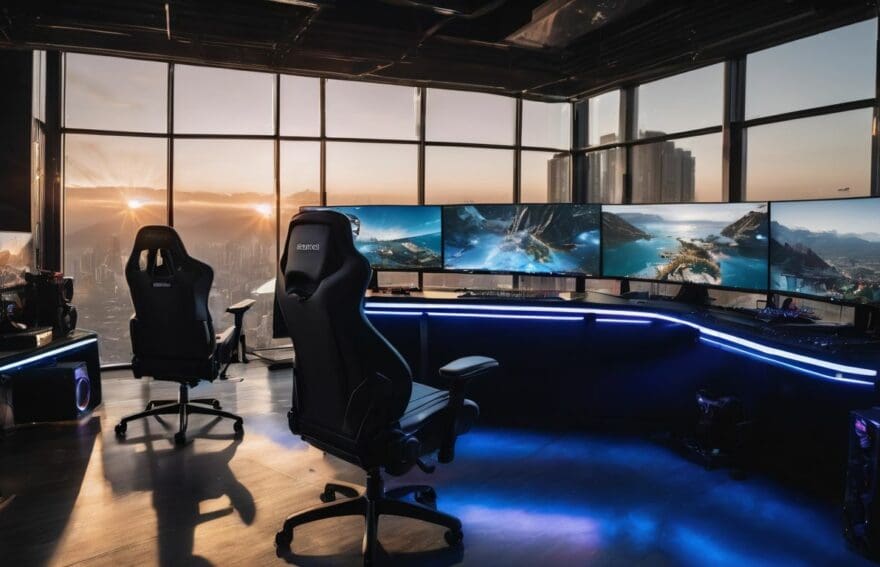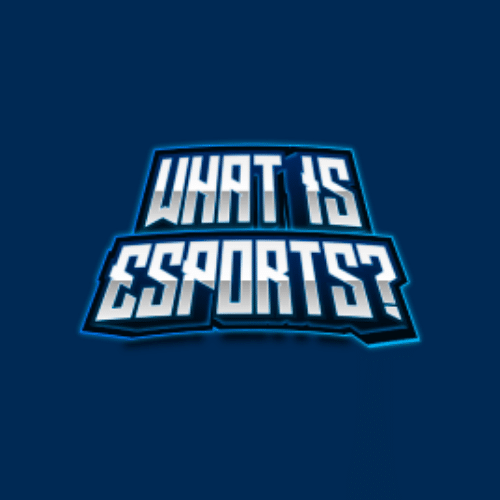The Science of Esports: Analyzing Performance and Strategy

Updated On: November 28, 2025 by 
You’re giving it your all in the competitive gaming arena, yet you seem to be up against an insurmountable barrier when it comes to enhancing your performance and tactics. It’s a common stumbling block, and rest assured, we understand the frustration it can bring.
That’s precisely why we’ve taken a deep dive into the esports science vault, sifting through to extract actionable insights. In this article, we’ll lay out advanced strategies and training tips designed to finely hone your abilities – just what you need for that much-coveted boost up the rankings.
Together, let’s tap into that untapped potential of yours!
Understanding Esports: What Are They and How Do They Work?
Esports, also known as electronic sports, are competitive video gaming events where players square off in popular games that range from strategic team-based games to individual face-offs.
These digital battles take place in virtual arenas, and just like traditional sports, they draw massive audiences both online and offline. We’re talking about professional gamers going head to head for championship titles and prize money—making it a serious business.
To make these competitions fair and exciting, esports rely heavily on technology for both playing the games and streaming them to fans around the world. Players train rigorously, developing fast reflexes, strategic thinking, and teamwork skills.
Behind the scenes of every major competition are teams of researchers working hard analysing performance data to refine strategies and improve training methods. They aim to optimise player performance while ensuring balance within the game so that skill determines who comes out on top—not chance or unfair advantage.
Meanwhile, cognitive science plays a crucial role in understanding how mental faculties like decision making under stress or maintaining confidence impact outcomes in esports tournaments.
The Structure of Esports Performance
We will explore the theoretical models and integrative model used to understand the structure of esports performance, providing an in-depth analysis of how players’ competencies and training areas are crucial to their success in various esports.
Theoretical Models
- Cognitive Load Theory – Exploring how different tasks impact mental resources and affect performance in esports.
- Ecological Dynamics – Considering the dynamic interaction between players and the gaming environment, emphasising adaptability and real-time decision-making.
- Skills Acquisition Model – Examining the process of skill development in gaming, from novice to expert levels, highlighting the role of deliberate practice and feedback mechanisms.
- Flow Theory – Investigating the optimal state of consciousness during gameplay, where players experience deep immersion and peak performance.
Integrative Model
The integrative model in esports performance analysis combines various theoretical frameworks and factors to understand the complexity of player performance. It takes into account cognitive science, sports analytics, and notational analysis to create a comprehensive approach for assessing and improving esports performance.
This model allows researchers and professional teams to consider the diverse competencies involved in gaming, including decision making under stress, confidence levels, and cognitive performance.
Additionally, it emphasises the need to balance training methods with actual competition demands for optimal esports performance.
In understanding the integrative model’s significance, it becomes evident that this approach forms a foundation for enhancing players’ skills while also addressing potential negative health effects associated with professional gaming.
The Importance of Specific Competencies and Training Areas
Specific competencies and training areas play a crucial role in the performance of esports players, with varying factors and correlations influencing their skill level and engagement.
It’s essential to understand the impact of playing time, fitness level, and motivation on a player’s overall performance.
Varying Factors in Different Esports
Esports encompass a diverse range of games, each with its own set of demands and challenges. Factors such as game genre, mechanics, and pace significantly influence the training requirements for professional gamers.
From real-time strategy games to first-person shooters or multiplayer online battle arenas, the cognitive skills and decision-making processes needed can vary drastically. In addition, the physical and mental toll on players may differ depending on the intensity and duration of gameplay in different esports disciplines.
The correlation between motivation, skill level, and training engagement varies across different types of esports. The impact of playing time and fitness level also fluctuates based on the specific demands of each game.
Correlation between Motivation, Skill Level, and Training Engagement
Motivation significantly impacts the skill level and training engagement of esports players. Studies have shown that highly motivated individuals tend to dedicate more time to practice, leading to enhanced skills and performance.
Furthermore, intrinsic motivation, driven by personal enjoyment and passion for gaming, has been associated with sustained engagement in training activities. Professional gamers’ high levels of motivation are often linked to their competitive drive and desire for recognition within the esports community.
In addition to motivation, skill level also plays a pivotal role in influencing an individual’s willingness to engage in training. Skilled players are more likely to invest time in honing their abilities through rigorous practice regimens.
Impact of Playing Time and Fitness Level
Having discussed the correlation between motivation, skill level, and training engagement in esports performance, let’s now delve into the impact of playing time and fitness level on gamers’ performance.
Professional esports teams are increasingly recognising the significance of physical fitness in gaming. Studies have shown that improved physical conditioning can positively influence reaction times, decision-making abilities, and overall gameplay performance.
Furthermore, managing playing time is essential to prevent burnout and maintain peak cognitive functioning during competition.
The amount of time spent on gaming has a direct impact on a player’s proficiency; still, excessive playing time without proper breaks can lead to decreased mental acuity. Moreover, maintaining physical health through regular exercise not only enhances endurance but also contributes to better mental focus during prolonged gaming sessions.
Analysing Esports Performance and Strategy
We will delve into the role of competencies in performance and the critical training components that are essential for success in esports. Don’t miss out on this crucial insight into the science behind gaming strategy!
The Role of Competencies in Performance
Competencies play a crucial role in determining esports performance. The specific skills and attributes that gamers possess, such as decision-making, confidence under stress, and cognitive performance, significantly impact their success in the virtual arena.
Additionally, the ability to balance training methods and competition is vital for sustaining peak performance over time. Professional gamer training must take into account these competencies to ensure players are equipped with the necessary tools to excel in high-stakes tournaments.
The correlation between motivation, skill level, and training engagement further underscores the importance of competencies in esports. As researchers delve deeper into understanding the intellectual structure of esports psychology and health and wellness considerations, it becomes evident that comprehensive research is essential for developing robust training methods tailored to individual strengths and challenges.
Critical Training Components
Esports training involves specific critical components that directly impact performance and strategy. These components are crucial for professional gamers, as they can significantly influence their competitive edge. Here are the essential training components:
- Refining decision-making skills to make split-second choices under pressure in high-stakes matches.
- Building confidence under stress through mental preparedness techniques to maintain focus throughout intense gameplay.
- Improving cognitive performance using tailored training methods to enhance processing speed, memory, and strategic thinking.
- Balancing competition and training schedules to optimise skill development while managing fatigue and burnout.
- Focusing on health and wellness to mitigate potential negative effects of prolonged gaming, such as physical strain and eye fatigue.
- Nurturing game strategy proficiency by analysing match statistics, devising effective tactics, and adapting strategies based on opponents’ gameplay patterns.
- Integrating esports – specific physical fitness routines to enhance endurance, coordination, and reflexes during gameplay.
- Incorporating notational analysis tools to track in-game performance metrics for review and improvement.
- Enhancing the balance between motivation, engagement in training activities, and skill level to sustain a competitive edge over time.
- Implementing effective esports research methodologies to continually evaluate the validity and reliability of match statistics for ongoing improvement in performance assessment and strategy development.
Conclusion
In conclusion, understanding the science of esports performance and strategy is crucial for both players and researchers. Validating match statistics and developing systematic research methods can enhance the credibility of esports as a competitive discipline.
The integration of cognitive science into training methods could further optimise performance in professional gaming. As the interest in esports health and wellness grows, there is an urgent need to establish mental preparation techniques and understand the impact of prolonged gaming on physical well-being.
These aspects will play a pivotal role in shaping the future landscape of competitive gaming.
FAQs
1. What is the focus of The Science of Esports?
The focus of The Science of Esports is on analysing performance and strategy, including training methods, decision making, and ensuring competition balance in esports.
2. How does cognitive science relate to esports?
Cognitive science studies how players think and learn, helping to understand their decision-making process and confidence under stress during esports competitions.
3. Can notational analysis be used in esports?
Yes, notational analysis can be applied in esports to record detailed events during games enabling a systematic review for improving strategies and training.
4. Why should someone study the intellectual structure of esports research?
Studying the intellectual structure helps uncover patterns within research such as validity and reliability concerns which contribute to developing effective training programmes in esports.
5. Does health and wellness matter in professional gaming or esports?
Absolutely! Maintaining good health and wellness is crucial for cognitive performance among professional gamers allowing them to perform optimally during intense competitions.


